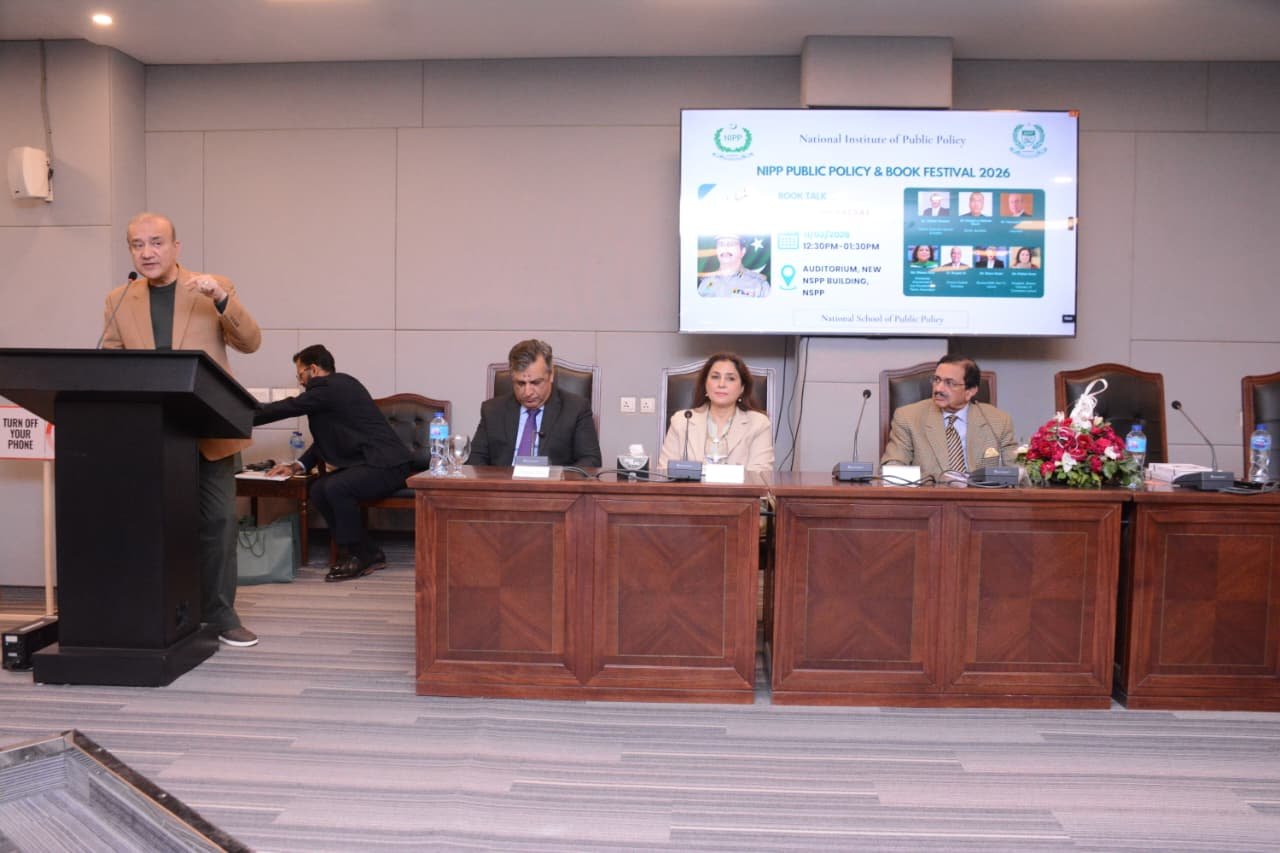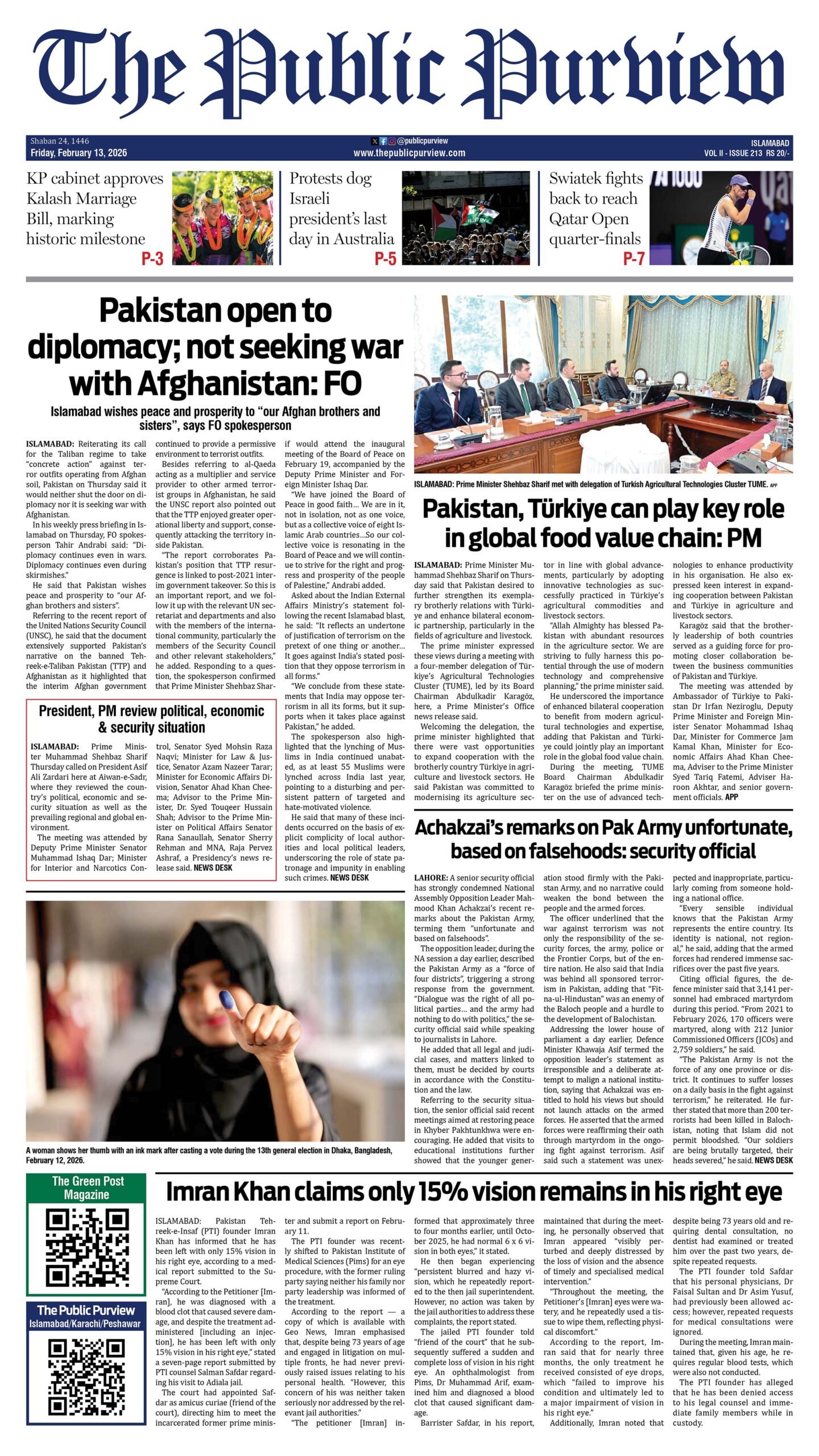Government’s incompetence in MDCAT is shredding Pakistan’s education, healthcare systems
Imran Ali Ghouri
“The government must relinquish control of the MDCAT process with immediate effect and empower medical and dental universities to conduct their own exams. These institutions, which are quite capable with competent leadership and faculty members, need the authority to create transparent, merit-based systems that align with their curriculum and give students a fair chance.”
Who is to blame for the unmitigated disaster of The Medical and Dental Colleges Admission Test (MDCAT) 2024? The answer is simple: the government. Specifically, Prime Minister Shehbaz Sharif, his advisors and administration, whose utter failure to manage a basic admission process has turned a straightforward task into an ongoing national embarrassment in the recent times.
The MDCAT is set to serve as a milestone—a clear, fair, and transparent process for selecting Pakistan’s future medical professionals. Instead, it has become a nightmarish fiasco that has left aspiring doctors in a state of confusion, frustration, and hopelessness. A system that should have provided a fair opportunity for Pakistan’s brightest minds has instead crushed their dreams.
The fiasco began when MDCAT 2024 was first scheduled for September 22, where close to 170,000 students took the test. Almost immediately, the exam was tainted with accusations of irregularities, unfair regional variations in difficulty, and a complete lack of transparency. While some students were given a reasonably difficult test, others faced an almost impossible challenge. The Pakistan Medical and Dental Council (PMDC) fumbled in its response, offering no real solutions and certainly no accountability. Rather than addressing these concerns, the PMDC acted like a deer caught in headlights, further isolating the very students it was meant to serve.
But that was just the beginning. As the political instability that has plagued the country continued, the exam, then rescheduled to November 24, 2024, was delayed again. Let’s pause and think about that: a national entrance exam delayed for political reasons. When was the last time Pakistan experienced such widespread disruption during crises like earthquakes, floods, or wars?
Somehow, even in the most extreme circumstances, the government managed to keep things running—except when it came to an exam. The government’s inability to manage something as simple as MDCAT is nothing short of embarrassing, and it speaks volumes about the complete lack of competence at the top. After multiple delays, the MDCAT retake examination was held in Islamabad on December 30, 2024, following the orders of the Islamabad High Court (IHC). Candidates from Islamabad, Azad Jammu and Kashmir (AJK), and Gilgit-Baltistan took part in the exam.
In much delayed response to this tumultuous saga, the National Assembly Standing Committee on National Health Services, Regulation, and Coordination, chaired by Dr. Mahesh Kumar Malani, has demanded transparency, fairness, and equity—basic expectations for any national exam. They even proposed a nationwide curriculum to address the glaring regional disparities in education. These are not radical ideas; they’re simply what any responsible government should have been doing already. But instead of swift action, we have the PM’s government sitting idly by, doing nothing but offering empty promises that ultimately go nowhere.
But if the delay and regional disparity were not enough, the technological failures added insult to injuries. The registration system was riddled with errors, further showing just how far behind the Pakistani education infrastructure is. In an era where every other country is digitizing processes with ease, Pakistan cannot even get a registration system for a single exam to function properly. This is not a one-off mistake—it is a reflection of the systemic failure that has gripped Pakistan’s entire education system. And once again, no one in power seems to care.
Make no mistake – this catastrophic failure is a direct result of the incompetence of Prime Minister Shehbaz Sharif and his government. Their failure to act, to provide leadership, and to deliver on their promises has turned the future of thousands of students into an uncertain, painful waiting game. The global reputation of Pakistan’s education system has been irreparably damaged. Now, international students and educational investors look at Pakistan with skepticism and, quite frankly, it may turn into disdain too. This is a direct result of the government’s failure to uphold even the most basic functions of state responsibility.
The damage does not stop there. As the authorities continue to stumble on the MDCAT, Pakistan is losing its brightest and most capable students to foreign universities. Every year, an increasing number of the country’s best talent, disillusioned by the ongoing chaos, is opting to study abroad. This exodus deprives Pakistan of the doctors, along with engineers, and other professionals, it so desperately needs. With every passing year, the country’s healthcare system deteriorates further due to the lack of qualified professionals. This is not just an educational crisis—it is a healthcare crisis in the making!
So, what is the real issue here? It is not just about an exam or even a single year of delay. It is a symptom of a much deeper problem as Pakistan’s entire education system is in freefall. Years of political interference, misguided policies, and sheer incompetence have dismantled what could have been a world-class educational framework. Now, instead of a system based on merit and opportunity, we have one that rewards delay, confusion, and mismanagement.
At this point, it is clear that the current government is incapable of managing the MDCAT process. The PM and the CM of Punjab must identify the culprits and hold them accountable without any delays. The future of Pakistan’s students—and its healthcare system—depends on immediate, decisive action. The government must relinquish control of the MDCAT process with immediate effect and empower medical and dental universities to conduct their own exams. These institutions, which are quite capable with competent leadership and faculty members, need the authority to create transparent, merit-based systems that align with their curriculum and give students a fair chance.
This is not just an educational failure; it is a national tragedy. And the PM, CMs, and their entire governments should admit that they have failed these students and their families. If Pakistan is to have any hope of reclaiming its future, the government must act now, not tomorrow, not next year, but NOW! Otherwise, the consequences of continued inaction might be felt for generations to come, and the damage could be irreversible.






 Today's E-Paper
Today's E-Paper